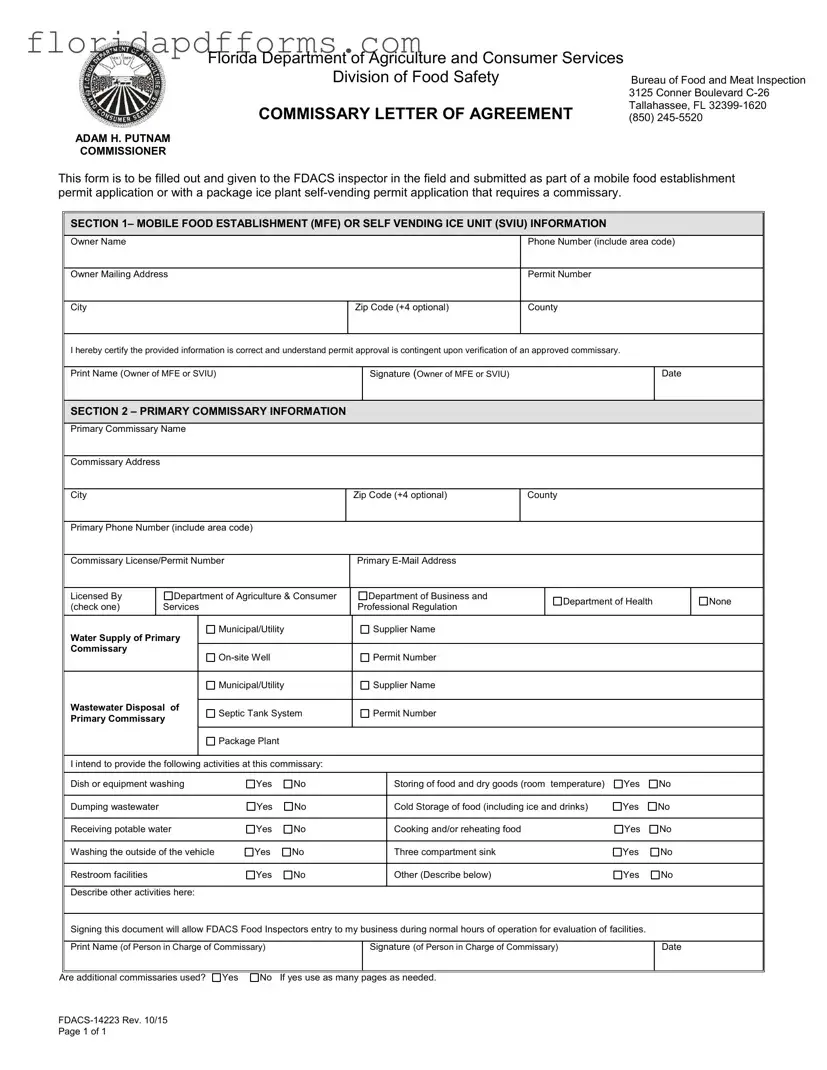Fill in Your Florida Commissary Letter Of Agreement Form
The Florida Commissary Letter of Agreement form is a crucial document for mobile food establishments and self-vending ice units. This form must be completed and submitted to the Florida Department of Agriculture and Consumer Services (FDACS) as part of the permit application process. Ensure compliance and streamline your application by filling out the form accurately and promptly.
Ready to get started? Fill out the form by clicking the button below.
Modify Florida Commissary Letter Of Agreement Now

Fill in Your Florida Commissary Letter Of Agreement Form
Modify Florida Commissary Letter Of Agreement Now

Modify Florida Commissary Letter Of Agreement Now
or
⇓ Florida Commissary Letter Of Agreement File
Don’t stop halfway through your form
Finish your Florida Commissary Letter Of Agreement online with quick edits and instant download.


 SECTION 1– MOBILE FOOD ESTABLISHMENT (MFE) OR SELF VENDING ICE UNIT (SVIU) INFORMATION
SECTION 1– MOBILE FOOD ESTABLISHMENT (MFE) OR SELF VENDING ICE UNIT (SVIU) INFORMATION